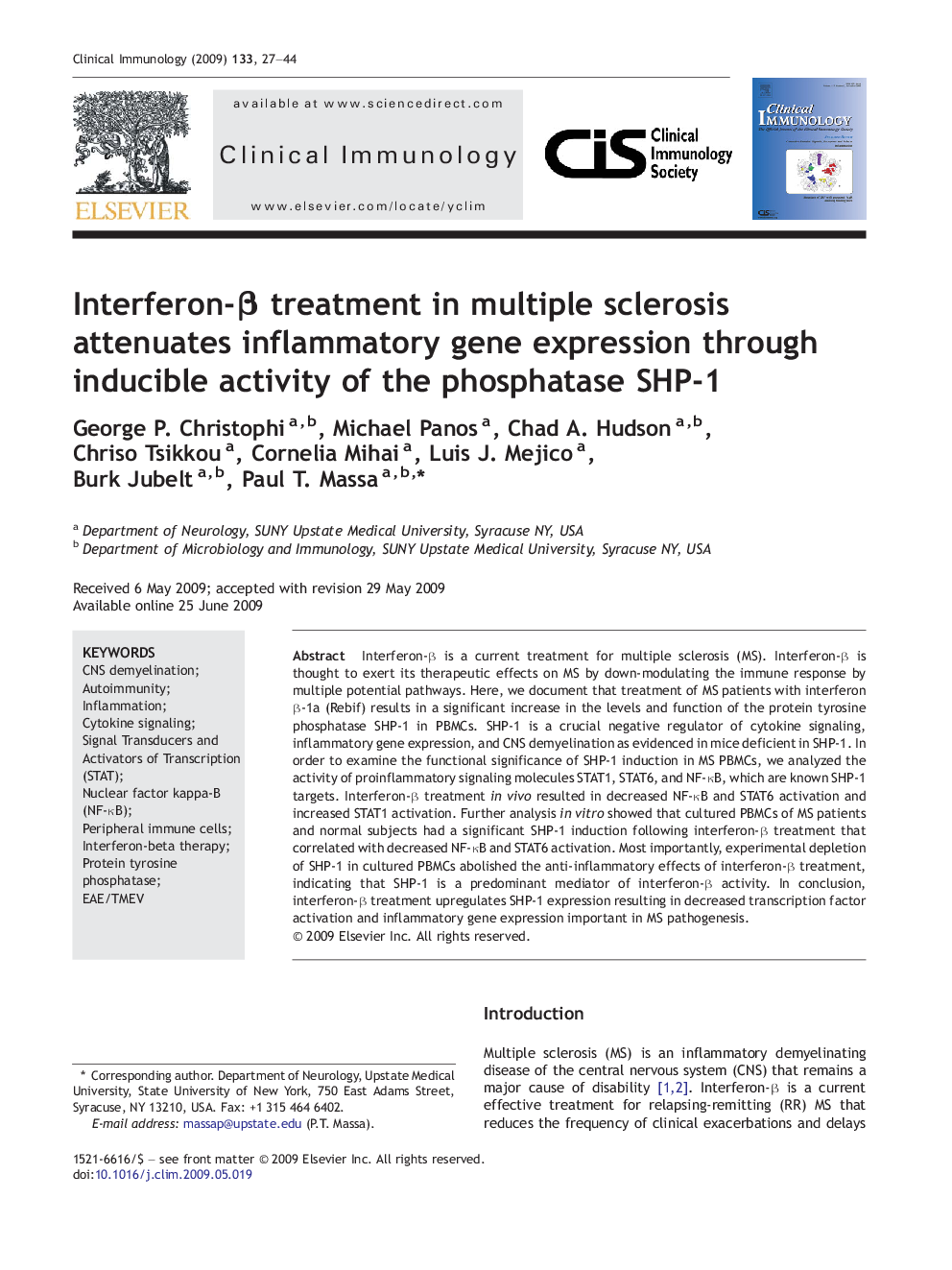| کد مقاله | کد نشریه | سال انتشار | مقاله انگلیسی | نسخه تمام متن |
|---|---|---|---|---|
| 3257890 | 1207431 | 2009 | 18 صفحه PDF | دانلود رایگان |

Interferon-β is a current treatment for multiple sclerosis (MS). Interferon-β is thought to exert its therapeutic effects on MS by down-modulating the immune response by multiple potential pathways. Here, we document that treatment of MS patients with interferon β-1a (Rebif) results in a significant increase in the levels and function of the protein tyrosine phosphatase SHP-1 in PBMCs. SHP-1 is a crucial negative regulator of cytokine signaling, inflammatory gene expression, and CNS demyelination as evidenced in mice deficient in SHP-1. In order to examine the functional significance of SHP-1 induction in MS PBMCs, we analyzed the activity of proinflammatory signaling molecules STAT1, STAT6, and NF-κB, which are known SHP-1 targets. Interferon-β treatment in vivo resulted in decreased NF-κB and STAT6 activation and increased STAT1 activation. Further analysis in vitro showed that cultured PBMCs of MS patients and normal subjects had a significant SHP-1 induction following interferon-β treatment that correlated with decreased NF-κB and STAT6 activation. Most importantly, experimental depletion of SHP-1 in cultured PBMCs abolished the anti-inflammatory effects of interferon-β treatment, indicating that SHP-1 is a predominant mediator of interferon-β activity. In conclusion, interferon-β treatment upregulates SHP-1 expression resulting in decreased transcription factor activation and inflammatory gene expression important in MS pathogenesis.
Journal: Clinical Immunology - Volume 133, Issue 1, October 2009, Pages 27–44